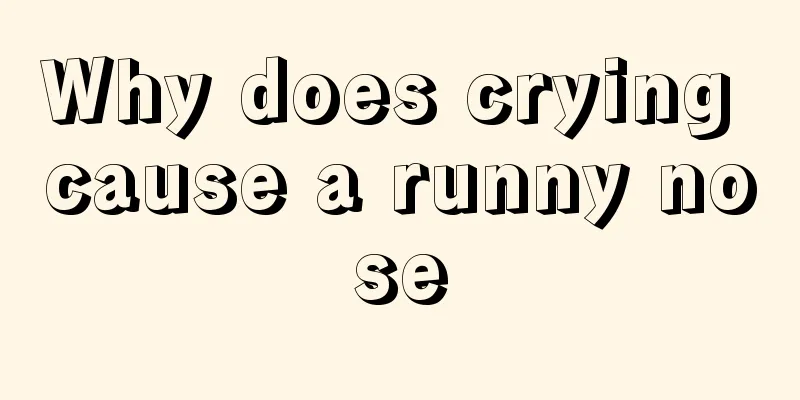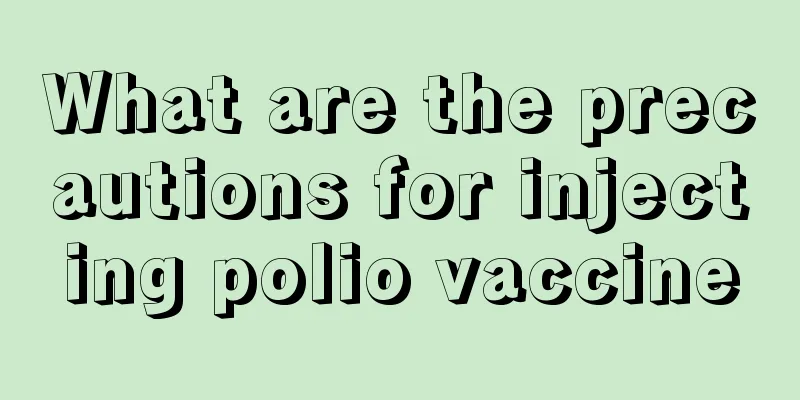Why does crying cause a runny nose

|
I believe that many people have experienced the phenomenon of crying. Whether when being overly sad or overly happy, the human body will naturally produce tears. However, people who cry often will find that many people tend to have a runny nose when they cry. Although this seems to be a normal phenomenon in the eyes of most people, they are not particularly clear about the reasons why a runny nose occurs when crying. So let me introduce to you the reasons that cause this phenomenon. There is a passage between the human eyes and nasal cavity, which is called the "nasolacrimal duct" in anatomy. Under normal circumstances, tears are secreted by the lacrimal glands and flow back through the veins at the corners of the eyes. When people cry, tears flow into the nasal cavity through the nasolacrimal duct. From a medical point of view, tears are a liquid secreted by the lacrimal glands, which are located on the outer and upper part of the eyeball. The average person blinks about 13 times per minute, and every time they blink, the eyelids bring out some tears from the tear glands. When people blink, tears have a cleansing effect on the eyes, such as washing away foreign matter, irritants, etc. Therefore, tears are not only produced when we are sad and crying, we always have them in our daily life, but the tears produced at this time are very few, just enough to moisten the eyeballs and balance the production and evaporation. People often say that when they cry, they shed "a lot of snot and tears". So what is going on? When a person is very sad and painful, tears will stream down his face, and it will show as "a lot of snot and tears". This is because excessive tears are connected to the nasal cavity through the lacrimal ducts, lacrimal sacs and nasolacrimal ducts, and are discharged from the body through the nasal cavity. At this time, production is greater than evaporation, and tears have to find another way out (nasal cavity). When tears pass through the nasal cavity, the nasal cavity is stimulated and the nasal secretions increase. What flows out at the beginning is a mixture of tears and snot. When you stop crying, what flows out of the nasal cavity is real snot. Generally, the runny nose will stop naturally or decrease significantly after crying. However, when a person is too sad and cries for a long time, the runny nose will not stop immediately after stopping crying. It will only stop after the mood gradually calms down. If your nose continues to run after a long time, you may have a cold (people sweat when they cry, and it is very easy to catch a cold). In this case, you should see a doctor. It has been observed that the harder a person cries, the more snot he produces. Whether on TV or in daily life, we can’t avoid seeing scenes of people crying. Some people cry and beat their chests, some wail loudly, and some cry out of emotion. No matter what kind of emotion it is, it is inseparable from snot. There are many idioms about crying. "Grateful with tears" is a good example. According to the original meaning, "tears" means tears, but why doesn't it say "Grateful with tears"? It is because tears and snot are closely related. "Crying bitterly" also means someone crying in pain. |
<<: Do I need to fast for the 30-week prenatal check-up?
>>: There is a buzzing noise in the ears
Recommend
What to do if the inner thighs are rubbed and painful in summer
If you don’t bring it with you in an air-conditio...
What kind of plants are good to put in a new house
New houses often have paint smell that has not ye...
What does high d-dimer mean
A high D-dimer level indicates an increase in the...
What to do if your skin is dark and dry
If your skin becomes dark and dry, you should emp...
Can I drink the water without boiling it?
Many people believe that if you drink raw water, ...
Symptoms of carotid artery aneurysm
People may not know much about carotid artery ane...
What are the treatments for lower limb thrombosis?
Lower limb thrombosis is a relatively dangerous d...
What causes herpes simplex? It is important to take good prevention measures
Herpes simplex is a common skin disease, and the ...
What's wrong with biting my lips all the time
Lip biting is a problem that many people have, es...
How to make delicious chicken soup
Drinking soup is a habit of many people. Nowadays...
Why do you get breast cancer? The most important thing to prevent breast cancer is to go to the hospital for a check-up
Why do you get breast cancer? Studies have shown ...
How to make nipples bigger?
Pert breasts have always been the focus of a woma...
Why does my mouth always blister?
People will encounter some diseases in their live...
The hazards of medium frequency physiotherapy instrument
I believe everyone is aware of the effects of phy...
What to do if your ears are ringing
Under normal circumstances, there will be no soun...









